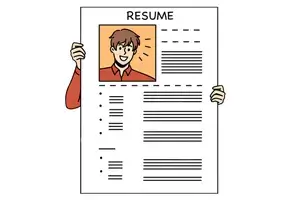Unlocking Opportunities: The Art of Resume Keyword Optimization

Your resume serves as the key to unlocking doors of opportunity. One crucial aspect that can significantly impact your resume's visibility is the strategic use of keywords. In this blog post, we'll delve into the art of resume keyword optimization, exploring why it matters and providing actionable tips to ensure your resume stands out in the digital sea of applications.
Why Keywords Matter in Resumes:
In today's digital age, many companies utilize Applicant Tracking Systems (ATS) to manage and streamline the hiring process. ATS software scans resumes for specific keywords before human eyes ever see them. This makes understanding and incorporating relevant keywords essential for getting your resume noticed.
Understanding the Role of Keywords:
Alignment with Job Descriptions:
- Successful keyword optimization involves aligning your resume with the language used in job descriptions. Carefully analyze the requirements of the job you're applying for and incorporate those keywords seamlessly into your resume.
Improved ATS Ranking:
- ATS ranks resumes based on keyword relevance. The better your resume aligns with the job's requirements, the higher it's likely to rank. This increases the chances of your resume being shortlisted for human review.
Showcasing Industry-Specific Competence:
- Keywords are not just about passing through ATS; they also showcase your industry-specific competence. Using relevant terminology demonstrates to hiring managers that you speak the language of the field and understand its nuances.
Actionable Tips for Resume Keyword Optimization:
Thoroughly Analyze Job Descriptions:
- Before crafting your resume, carefully read and analyze the job descriptions of positions you're interested in. Identify recurring keywords, skills, and qualifications.
Incorporate Both General and Specific Keywords:
- Strike a balance between general industry keywords and specific terms from the job description. This ensures your resume is comprehensive while targeting the specific needs of each role.
Place Keywords Strategically:
- Distribute keywords strategically throughout your resume. Incorporate them in your professional summary, skills section, job descriptions, and even in your education section if relevant.
Use Synonyms and Variations:
- ATS systems are becoming more sophisticated and can recognize synonyms. Incorporate variations of keywords to increase the likelihood of matching different search criteria.
Quantify Your Achievements:
- Where possible, quantify your achievements with numbers and figures. This not only adds substance to your resume but also introduces numerical keywords that can be impactful.
Tailor Your Resume for Each Application:
- Customize your resume for each job application. While you can have a master resume, ensure that you adjust the content and keywords to align with the specific requirements of each position.
Include Industry Certifications:
- If applicable, include relevant industry certifications in your resume. Certification names are often keywords that can enhance your resume's visibility.
Seek Inspiration from LinkedIn Profiles:
- Explore LinkedIn profiles of professionals in your field. Note the keywords and phrases they use to describe their skills and experiences. Incorporate similar language into your resume.
Conclusion: Elevating Your Resume with Keywords
In the competitive job market, a well-optimized resume can be the difference between landing an interview and being lost in the crowd. By mastering the art of resume keyword optimization, you not only navigate through ATS but also demonstrate your industry expertise to hiring managers. Unlock the doors to your desired career opportunities by strategically infusing your resume with the keywords that matter most. Happy job hunting!
 Ensuring Perfection Before You Apply
Ensuring Perfection Before You Apply














